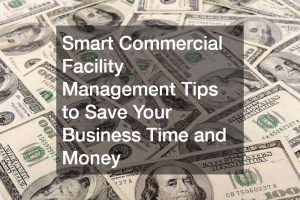Low-income house buyers may encounter several roadblocks on their path to homeownership. Paying your monthly rent and saving your house down payment can be a real challenge. You could have a harder time keeping your debt-to-income ratio and credit score in check.
While it might be difficult to purchase a house on a less-than-average salary, there are several loan alternatives and programs accessible made available by the Department of Housing and Urban Development (HUD) and other federal agencies that may help make homeownership more attainable for low-income folks. Chances are, at least one of them applies to you.
FHA Loans
Insured by the Federal Housing Administration, these loans are offered by approved mortgage loan lenders nationwide and allow for a down payment as low as 3.5%. You can talk to your chosen lender about the FHA benefits and features that may work best for you. Good mortgage lenders may offer fixed-rate and adjustable-rate mortgages (ARM) as well.
Borrowers with low credit scores, bad credit histories, or no credit history might qualify for these loans. This can make it easier for more renters to purchase a house. They have less stringent standards than other forms of financing and may be used by individuals with weak finances or bad credit history. They have lower lending criteria than traditional house loans, such as a lower borrowing limit and/or lower interest rates.
USDA Mortgages
You may qualify for a USDA mortgage if you’re looking to buy a house in a rural area with little to no population. Officially called the Single-Family Housing Guaranteed Loan Program. The U.S. Department of Agriculture offers these loans with zero down payment requirements and low-interest rates.
To qualify for a USDA loan, you must prove that you have a steady income and cannot obtain financing from other sources. The requirement is that you acquire property in a USDA-approved rural region. The USDA’s eligibility maps can tell you if the location you’re buying is eligible and whether you meet local income limits. Your monthly payments might be lower, too, since USDA loans have historically had lower interest rates and mortgage insurance premiums than FHA or conforming loans.

VA Home Loans
The Department of Veterans Affairs (VA) offers a home loan guaranty benefit and other housing-related programs to help eligible service members, veterans, reservists, National Guard members, and certain surviving spouses purchase, build, retain, repair, or adapt a house. The Department of Veterans Affairs (VA) backs VA loans, just as the USDA does for USDA loans. The VA guaranteed these loans, giving lenders additional flexibility in terms.
If you’re a veteran, you may be able to get a VA home loan with no down payment and low-interest rates. You also won’t have to pay for private mortgage insurance (PMI). These benefits can help you save a lot of money over the life of your loan. To qualify, you must have satisfactory credit, sufficient income, and a valid Certificate of Eligibility (COE). You can get a COE through the VA or your lender.
Homeownership Vouchers
The housing choice voucher program (also known as Section 8), which provides rental assistance to very low-income families with children, the elderly, and people with disabilities, allows these same people to use their vouchers to purchase and own houses. This program is called the Housing Choice Voucher homeownership program. It does this by providing “vouchers” that can be used to cover a portion of your monthly mortgage payment.
To qualify for the program, your family’s income must be less than 50% of the median income in your area. You also must be able to afford the monthly voucher payment and pay any remaining balance on your own. In addition to any demands imposed by your public housing agency, you’ll also need to be a first-time house buyer and complete a homeownership counseling program.
HUD Home Program
The HUD home program is a good option for low-income earners struggling to find affordable housing. It provides families with homes that have been foreclosed on and are owned by HUD. These homes are then sold at a discounted price to low-income buyers who meet the eligibility requirements.
HUD Homes are often sold for less than market value, making them an appealing alternative for people who don’t have a lot of financial means. However, like with other foreclosures, HUD Homes are marketed “as-is,” implying that no repairs will be done before the sale.
To qualify for the HUD home program, you must make less than 80% of the median income in your area. You also must be a first-time home buyer or have not owned a home in the past three years. In addition, you must be a U.S. citizen or legal resident with a good credit history.
To Sum Up
You may not be a high earner, but that doesn’t negate the fact that you can buy a house. If you’re looking to buy a home, several government programs can help you. Eligibility for most of these programs is based on factors such as income level and location, so be sure to do your research and see if you qualify.





